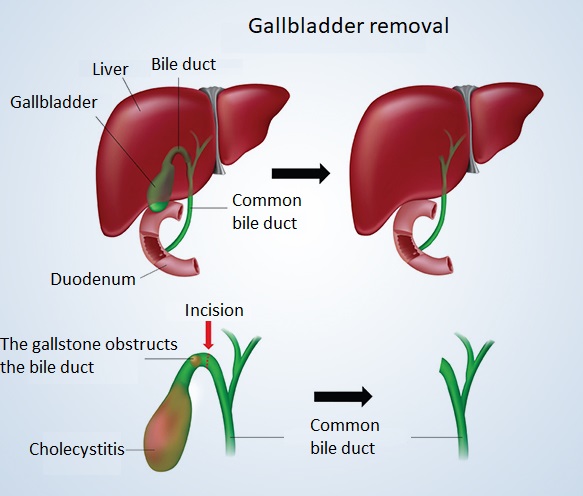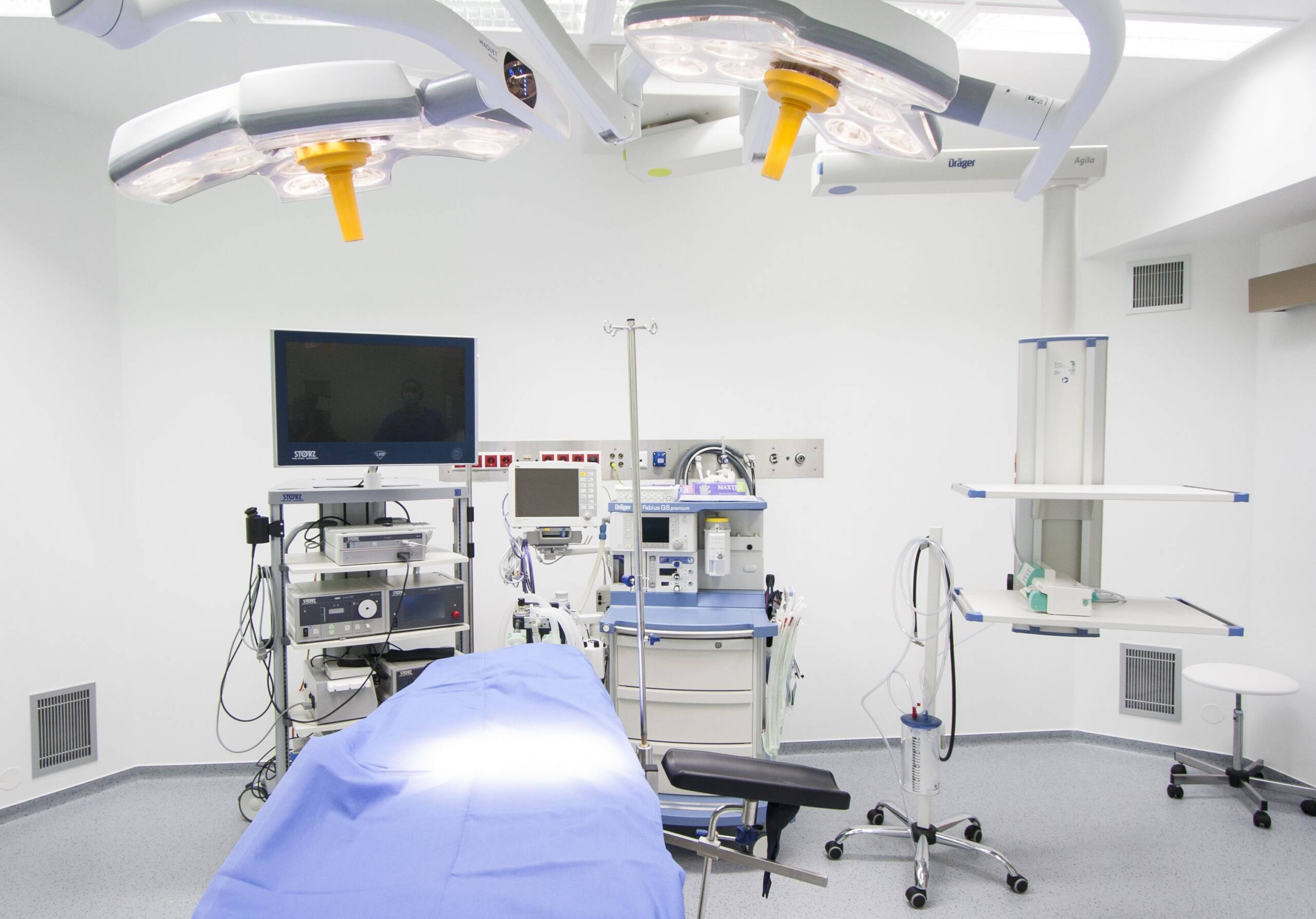Gallstone surgery, gallbladder removal, gallbladder surgery
What is a gallbladder and why is it necessary to have it removed?
The gallbladder is a greenish, hollow, pear-shaped single organ located below the liver, in which the bile, the fluid produced by the liver to digest fats, is stored and concentrated before it is excreted into the small intestine. In terms of dimensions, it can be 7-10 cm long, 3-4 cm wide and have a capacity of 40-50 ml.
In the gallbladder, bile thickens about 10-fold, increasing its effectiveness against fats. It does not contain enzymes, it emulsifies fats so that the small fat droplets thus formed can be digested by the enzymes in the small intestine.

One of the most common diseases of the gallbladder is choledocholithiasis (or cholelithiasis), which is usually caused by the presence of small and hard gallstones, which are made up primarily of cholesterol and bile salts that form in the gallbladder or bile duct. These stones can block the passage of bile from the gallbladder, making it swell, causing sharp abdominal pain, vomiting, indigestion, and sometimes fever. Gallstones can range in size from 1-2 mm to several centimetres.
Alternative treatments to break or dissolve gallstones are mostly unsuccessful. Surgical removal of the gallbladder is the safest, most long-lasting treatment for gallbladder disease.
What are the predisposing factors for gallstones?
Overweight individuals, those with metabolic disorders, diabetics and liver patients are particularly prone to gallstones.
Complaints usually occur after consuming large amounts of excessively fatty foods. The most common symptoms include severe, right lower rib spasmodic pain and nausea, as well as vomiting.
Gallstones cause a big problem if it partially or completely clogs the bile duct.
How is the procedure done?
The most common surgical solution for gallbladder removal is laparoscopic cholecystectomy, which requires only a short hospital stay. The surgeon introduces a tiny video camera and special surgical instruments through four small incisions to see the inside of the abdomen and removes the gallbladder, along with which the gallstones are also removed.
What are the advantages and risks of gallstone surgery?
Cholecystectomy relieves the pain and discomfort caused by gallstones. The re-formation of gallstones cannot usually be prevented by conservative treatments such as dietary modification. Some people experience mild diarrhoea after gallstone surgery, although this usually goes away over time.
Most people do not experience digestive problems after surgery because the lack of gallbladder does not affect healthy digestion. The risks always depend on the cause of the surgery and the state of health. In rare cases, cholecystectomy can cause bleeding, infection, blood clots, and bile leakage in the postoperative period.

Am I fit for gallbladder removal?
Although laparoscopic gallbladder removal has many benefits, the procedure may not be appropriate for patients with severe complex gallbladder disease or who have previously undergone upper abdominal surgery.
How do I prepare for gallstone surgery?
Gallstone surgery takes place in our private hospital after careful preparation. Before surgery, you should follow some important instructions, such as that you should not eat anything the night before the gallbladder is removed, stop taking certain medications, and drink a solution to cleanse the intestines.
Laparoscopic gallstone surgery is performed under anaesthesia, so you will unconscious during the procedure.
What should I do after the surgery?
After laparoscopic gallstone surgery, it is only necessary to spend one night in Medicover Private Hospital, and patients usually experience minimal postoperative pain. Usually after going home, you can expect to be able to eat and drink without pain and to walk without help.
After the surgery, you will no longer have a gallbladder, which could store the bile produced by the liver. Your body also needs to adapt to this changed situation, which you can help by following a proper diet.
Why is a follow-up examination important after the surgery?
One week after surgery, a follow-up examination is needed to remove the sutures and monitor the healing process.
What is included in the price of our surgeries?
- costs of the surgery
- costs of anesthesia (local or general anesthesia, postoperative pain relief)
- the costs of the planned hospital stay and care
- necessary medicines and certain medical aids during the stay
- inpatient physiotherapy treatment (if necessary for rehabilitation)
- if necessary, the fee for the planned histological examination
- the price of the first follow-up examination
What additional costs might be expected?
- implants
- consultation with the anesthesiologist (must be done in Medicover)
- pre-operative examinations (if performed by us)
- in case of blood group antibody positivity, the blood matching fee
- hotel service fee for extra care days
- aids for further rehabilitation
- accompanying person staying in the hospital
- day (with one meal) 20 000 HUF
- night (full board) 60 000 HUF
- furthermore, if necessary, the cost of the 2nd follow-up examination is the fee of the specialist examination -50%, the cost of the 3rd follow-up examination is the fee of the specialist examination -30%
The course of the surgery
Before surgery
- pre-surgery specialist consultation, where the specific surgical proposal is made
- consultation with the Case Manager
- general information if necessary
- preparation of a written quotation
- booking surgery and preliminary examination appointments
- payment
-
carrying out pre-operative examinations
-
arrival for surgery
On the day of surgery
- arrival at Medicover Hospital at 6:30
- check-in at the reception on the ground floor
- occupying a room accompanied by a nurse, who provides information
- morning visit with the specialist physician and anesthesiologist
- surgery
- postoperative monitoring
- afternoon visit with the specialist physician
- constant anesthesiology specialist monitoring in the postoperative period
- discharge (with an accompanying person), final report and handing over a certificate
Surgical service process
- surgery
- hospital stay and care
- planned histology
- follow-up examination, sutur removal
